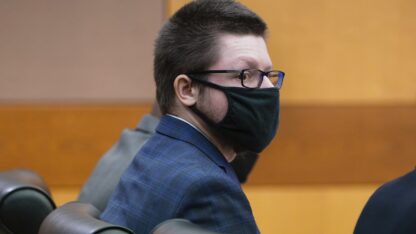Atlanta parents lead movement to bolster AAPI history education, address racism
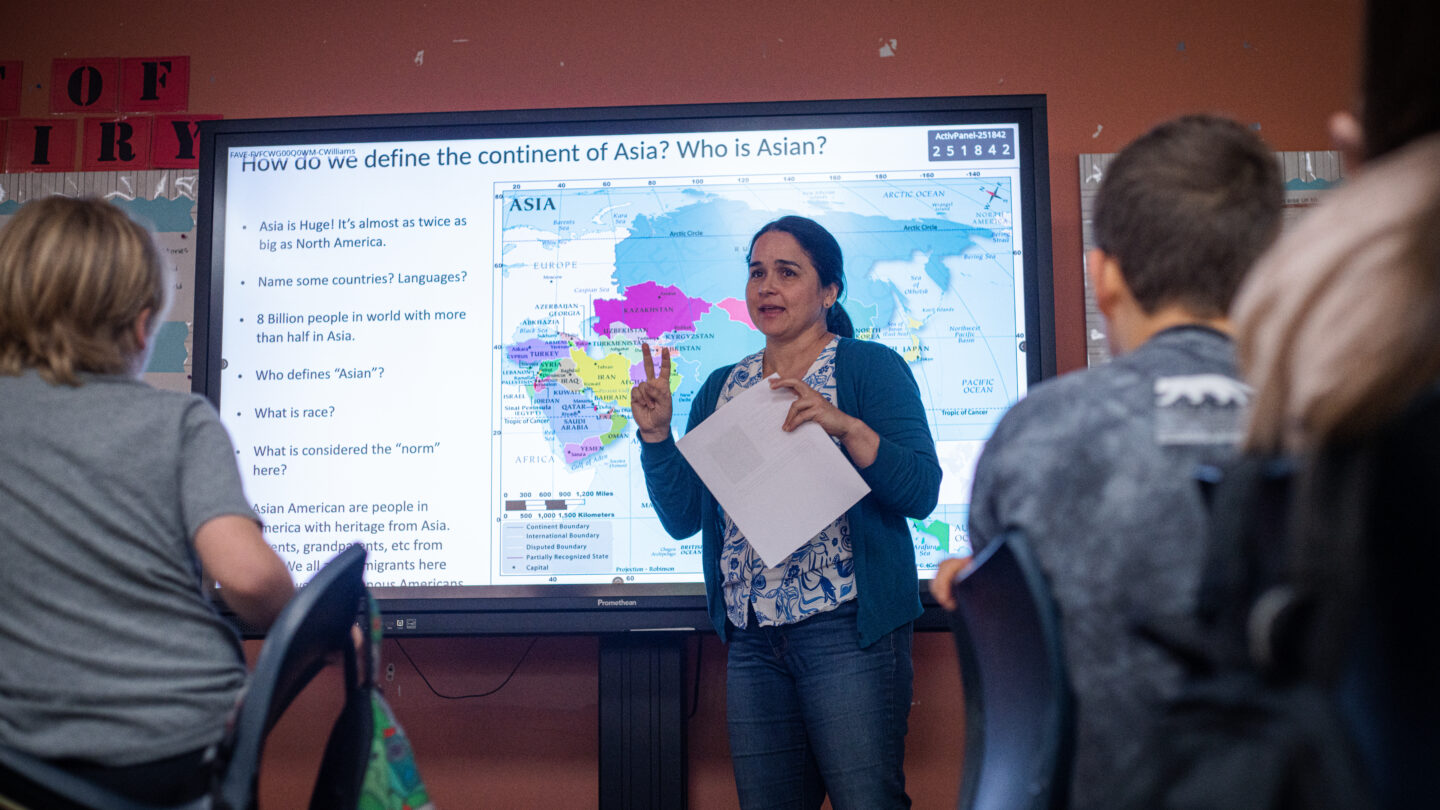
Lorraine Irier pointed at a black-and-white photo of a little girl on the screen at the front of a classroom. She visited her son Zaren’s fifth grade class at Decatur’s Fifth Avenue Upper Elementary.
“Do we know who this is?” she asked. The class responded with a collective, “Ruby Bridges.”
This Year on WABE: 2023
2023 was a big year at WABE. We turned 75, launched WABE Studios, and the WABE Newsroom continued to cover the critical issues Atlantans care about most. Here are a handful of stories, photos, television and podcasts we think stand out from this year.
Ruby Bridges was six years old when she became the first person to desegregate an all-white school in New Orleans. Students in Georgia learn about her — as per the state’s educational standards — as a lesson on historical figures that represent important character traits, like fairness.
Irier changed the slide. A sepia-toned photo of a young Chinese girl and her parents flashed across the screen.
“There are some lesser-known kids that I wanted to talk about,” she said. And she told the story of Mamie Tape, an 8-year-old Chinese American girl in San Francisco who wanted to go to school but, because her parents were from China, was first denied.
Irier is just one of many parents who volunteered this year to teach about Asian American Pacific Islander Heritage Month to their kids and their classmates. She’s part of the larger grassroots group of Asian parents across Atlanta called Asian American Voices for Education, or AAVEd, that is working to diversify lessons designed under Georgia’s educational standards to improve representation.
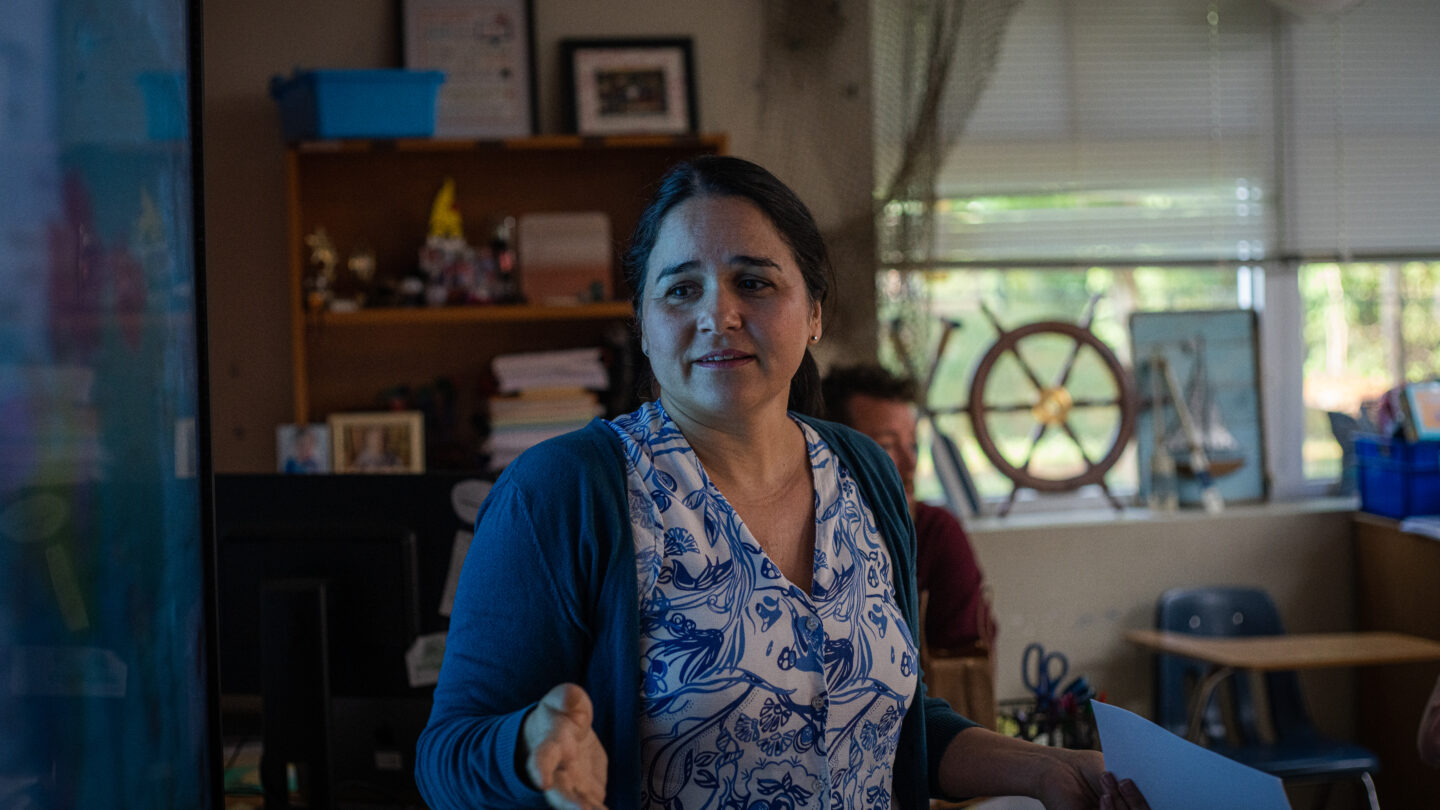
Mamie Tape’s story, like Ruby Bridges’, meets the state educational standard of a historical figure displaying fairness and courage. But she’s not often taught in Georgia schools — in fact there is a stark absence of Asian American figures in the curriculum.
“If we don’t talk about Asian American role models, what does that say to our kids? That they are the ‘other?’” Irier asked. “I think that’s how I felt like growing up.”
The movement started after eight people — six Asian women — were killed in shootings across metro Atlanta in March 2021. The killings came at a moment of swelling crimes against Asian people across the U.S.
After the shootings, Weonhee Shin spent endless nights trying to figure out how to make sense of the violence against Asian people. She’s Korean American and is raising three Asian American kids.
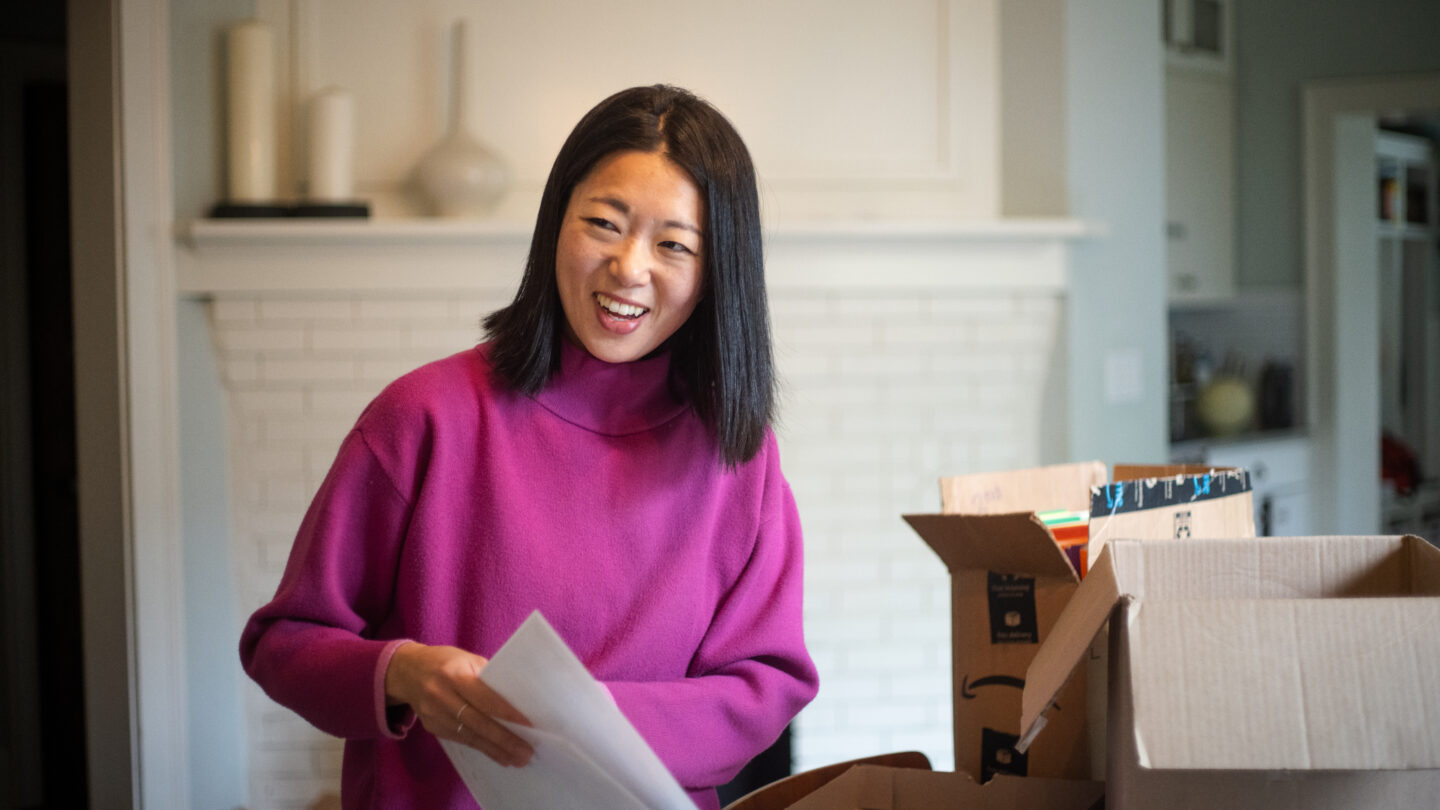
“I tell my kids, we’re not problem dwellers, we’re problem solvers,” Shin said. “We have so many things that we want, right? And there are people willing to help. There’s a community wanting to be formed.”
She found an interview in Time Magazine with one of the nation’s premier experts in combating anti-Asian racism, Sohyun An. An’s research focused on teaching stories of Asian American leaders in social studies classes in a way that demonstrates Asian people’s long history in the U.S.
It was late, almost midnight, but Shin sent out an email. And An replied immediately.
“I was revising my teaching so my kids could understand what happened right here in our backyard, so I was like 24 hours on the computer,” An said. “So I responded right back and said, ‘I hear you. I’m totally on the same page. Don’t worry, you’re not alone.’”
Together, Shin and An started AAVEd.
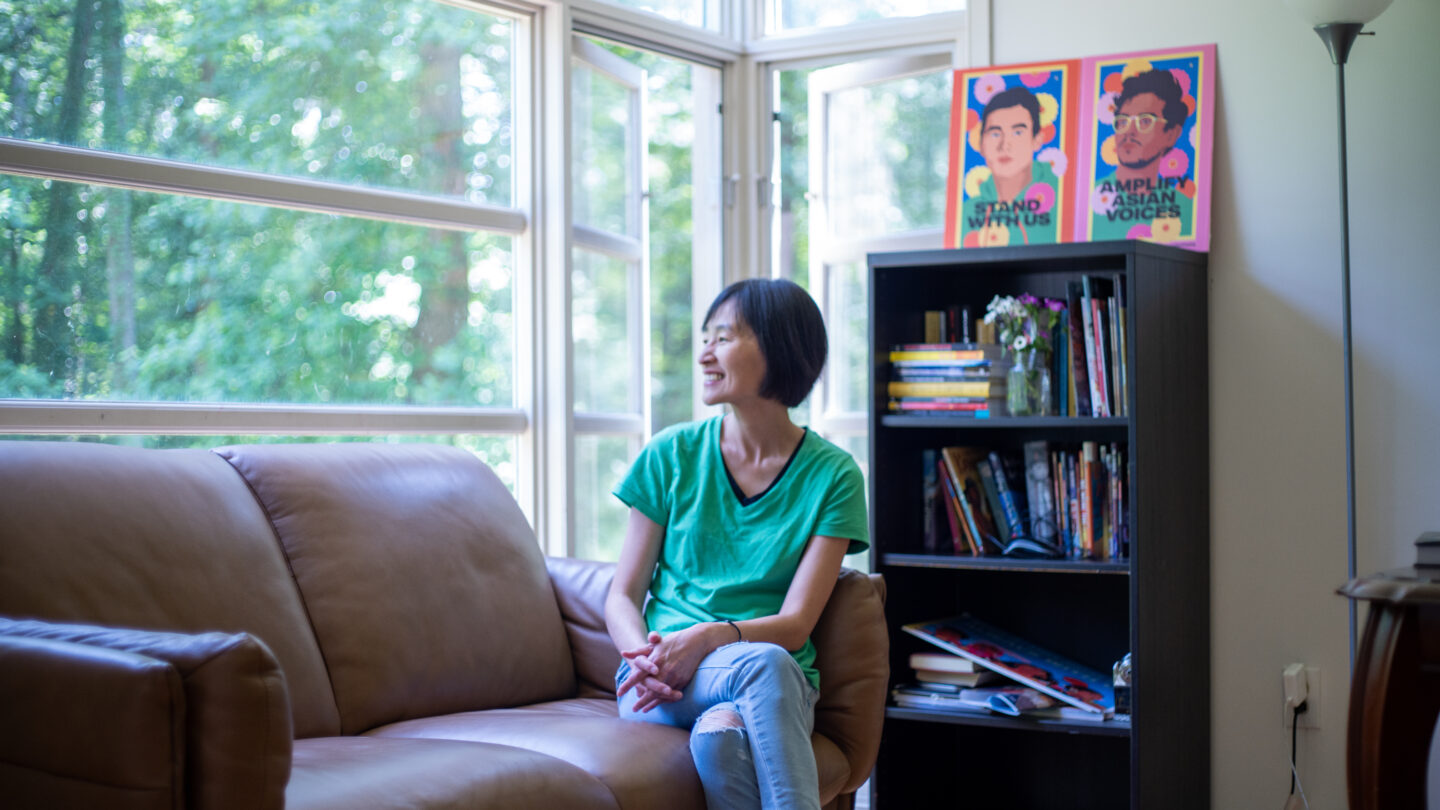
An said she was researching the violence of curriculum, which is when students — especially marginalized students — don’t see themselves in lessons. She said it becomes a source of psychic violence because when history texts neglect to tell nonwhite stories, that serves as a reflection of the lack of importance society puts on nonwhite people.
“It tells you, ‘You don’t matter. Your people don’t matter,’” she said.
An was fielding requests from journalists across the country and figuring out how to talk about the killings in her classes. At the same time, An was having these discussions at home with her two daughters.
“The things that I’ve been studying and writing about … it becomes real, right? You see that impact on my kiddos,” she said. “Then it becomes really personal.”
Her daughter, Jackie Kwun, was in the eighth grade when the shootings happened. She said until then, she tried to brush off racist jokes at school.
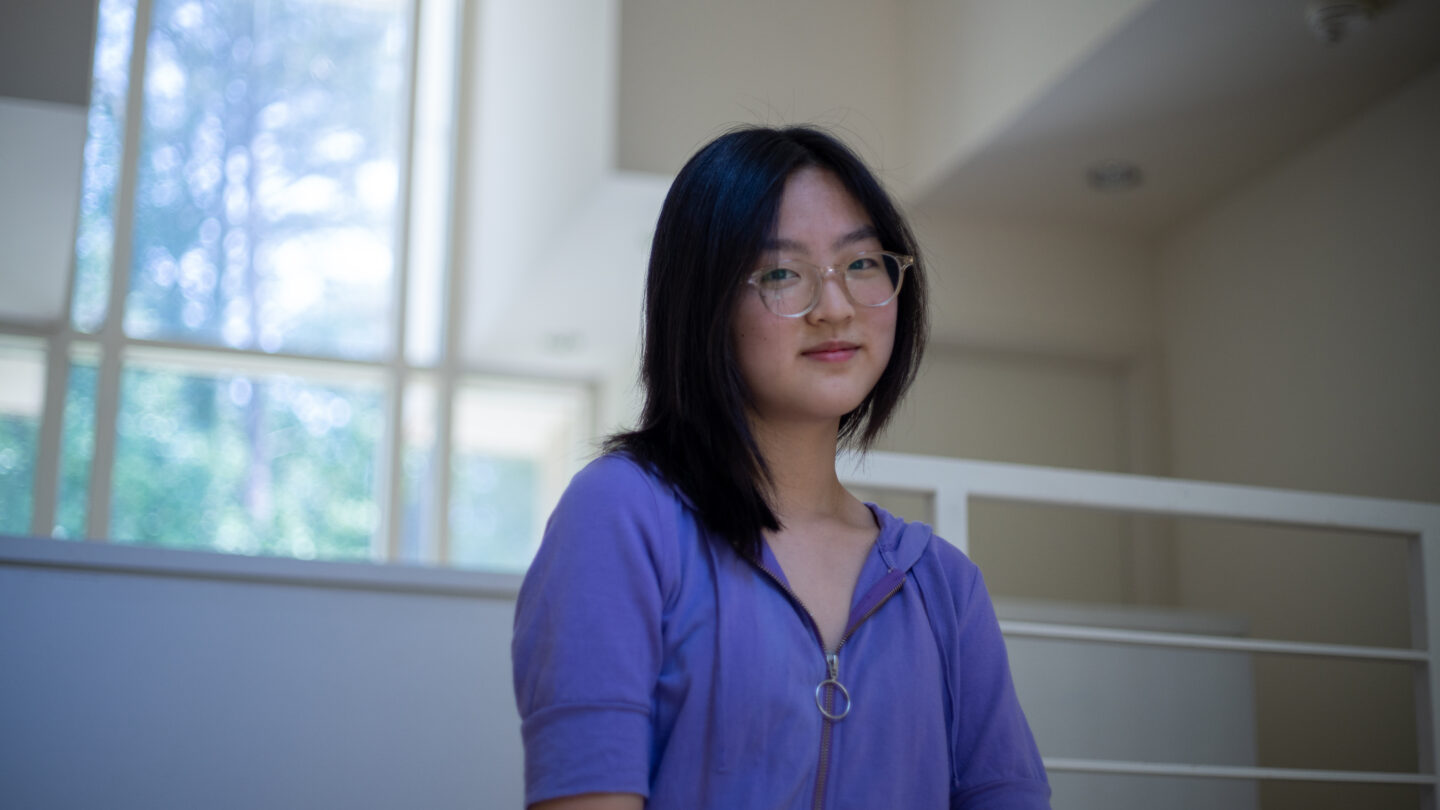
“Because it’s just a joke, you should be able to just take a joke. So again, you kind of learned to say, ‘Okay, well, whatever, I guess I don’t care.’” Kwun said.
Kwun grew up in the Georgia school system. She remembered the only time she learned about Korea, where her mom is from, was learning about the Korean War.
“It’s not the best way to see yourself or the people that look like you,” she said. “But in general, I was willing to just live with this. To be honest, I didn’t want to fight.”
Then, the Atlanta spa shooting happened a few minutes away from her school district.
“My school did absolutely nothing,” she said.
Now, Jackie helps her mom with AAVEd. The group builds grade-appropriate lesson plans for Georgia teachers that match the state’s already existing educational standards. Curriculum can be changed at the state level or, like with AAVEd, adapted to fit each grade.
The group said AAVEd’s lesson plans look at all cultures, abilities and gender expressions. And they’ve given out nearly 300 heritage learning kits to parents this year, with much of the material being taught in the classroom.
And while AAVEd is all volunteer-based and running on grants, Shin — the founder — said this is just the beginning of change.

